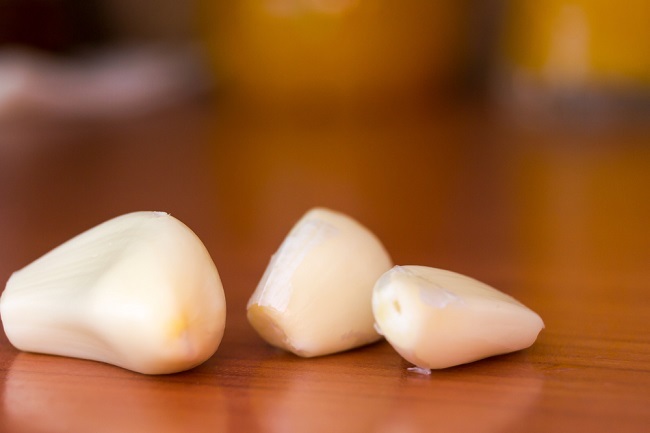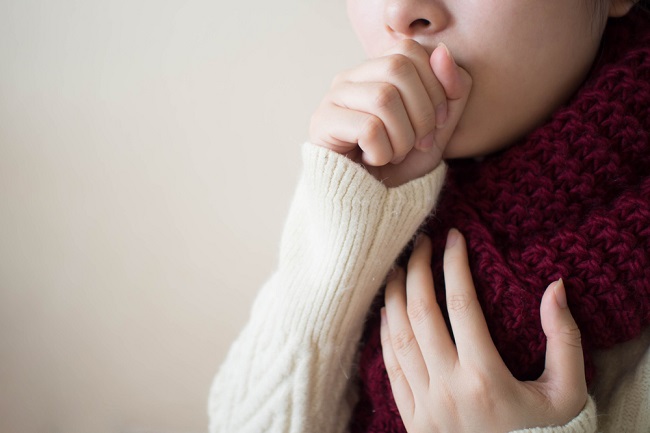In general, babies have sensitive skin so they are prone to irritation or other skin problems. Therefore, it is important for parents to know how to care for sensitive baby skin so that their skin health is always maintained.
Newborn baby's skin usually looks dry, scaly, and peeling. Baby's skin is also prone to irritation and various disorders because it is still adjusting to conditions outside the womb.

Because newborns' skin conditions are still very sensitive, proper care is needed to prevent various skin problems, such as eczema, diaper rash, or hives (urticaria).
Characteristics of sensitive baby skin
There are several characteristics of sensitive baby skin that you need to know, including:
1. Dry skin
Dry skin is one of the most common signs of sensitive skin, including in babies. Dry skin is characterized by scales or crusts on the skin that peel easily, both on the head and body.
2. Redness
Dry skin is generally accompanied by redness of the skin. There are several things that can trigger skin redness in babies, such as changes in temperature, the use of inappropriate baby skin care products, or friction with clothes and diapers.
3. Rash
Spots or rashes on the skin are common in babies and can appear anywhere on the body, especially the chest, back, arms and legs. However, this condition can go away on its own within 1 week.
4. Vulnerable to skin problems
Sensitive skin makes babies susceptible to various skin problems, such as:
- Eczema
- Baby acne
- Prickly heat
- Ringworm
- Hives or urticaria
- Diaper rash
- Impetigo or skin infection caused by bacteria
Well, from the various characteristics of sensitive baby skin above, you can realize that baby skin care should not be done carelessly. Proper skin care is needed to keep baby's skin healthy.
How to care for and care for sensitive baby skin
There are several things that can be done to treat and maintain sensitive baby skin, including:
Don't bathe the baby too often
Bathing a baby is one way to maintain healthy skin. However, bathing the baby too often is also not good, because it can cause the skin to become dry and prone to irritation. Babies should be bathed only 2-3 times a week.
Change diapers as often as possible
Don't leave diapers for too long, especially if they have sensitive skin. Change diapers frequently, at least every 2–4 hours and every time the baby has a bowel movement.
Clean the baby's buttocks, anus, and pubic area using a cotton swab or wet tissue with a suitable material hypoallergenic. In addition, avoid using a diaper that is too tight on the baby because it can make his skin blister or irritated.
Avoid too long exposure to the sun
The content of vitamin D in sunlight is good for baby's skin, especially babies who have jaundice. However, drying the baby in the sun should not be done excessively because it can cause irritation and various other problems on the baby's skin.
Use skin care products specifically for sensitive skin
It is important to choose skin care products that are suitable for the baby's skin condition. Use products that contain special ingredients for sensitive baby skin, such as:
- Hypoallergenic formula
- Organic Calendula
- Almond oil
- Sunflower seed oil
- Shea butter
The ingredients above are known to keep the baby's skin moist so that the baby can stay comfortable all day long. Avoid using baby skin care products that contain harsh chemicals.
Be aware of the appearance of the following symptoms on the baby's skin:
- Rash on the skin or dry, cracked skin that doesn't go away in a few days or gets worse
- Fever of 37°C or more
- Skin irritation that doesn't go away or subsides
- There are signs of infection in the rash, such as swelling or discharge of pus
If your child shows the above symptoms, immediately consult a doctor so that he can be given the right treatment, according to the condition he is experiencing.









